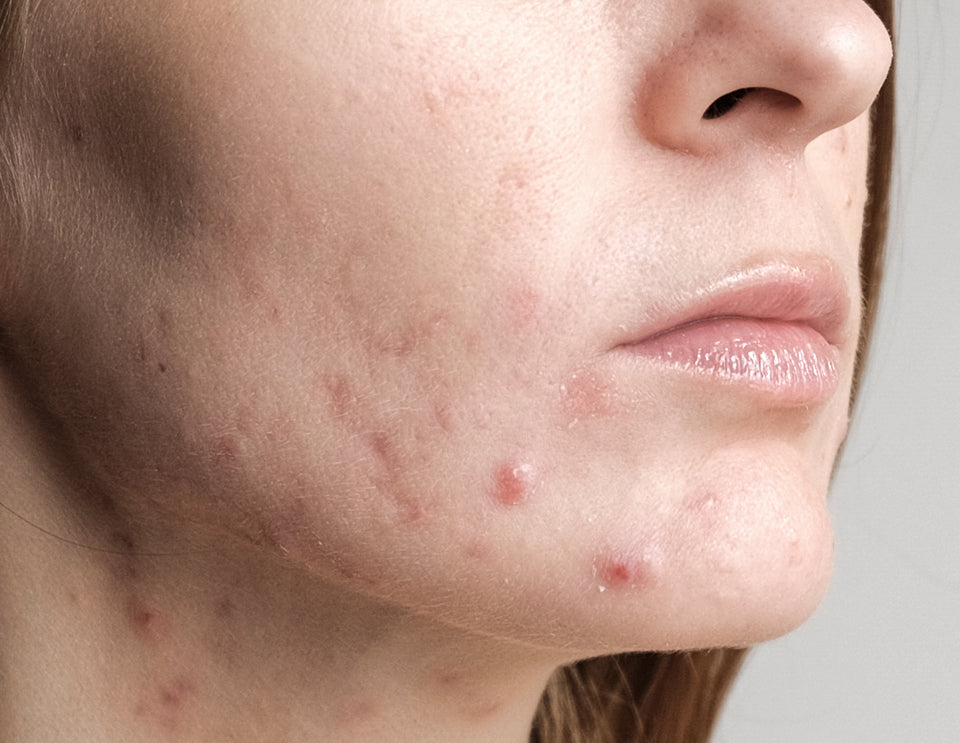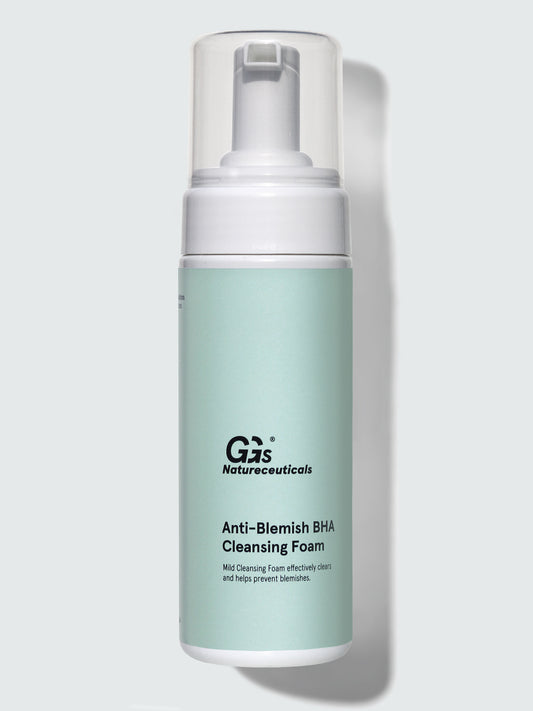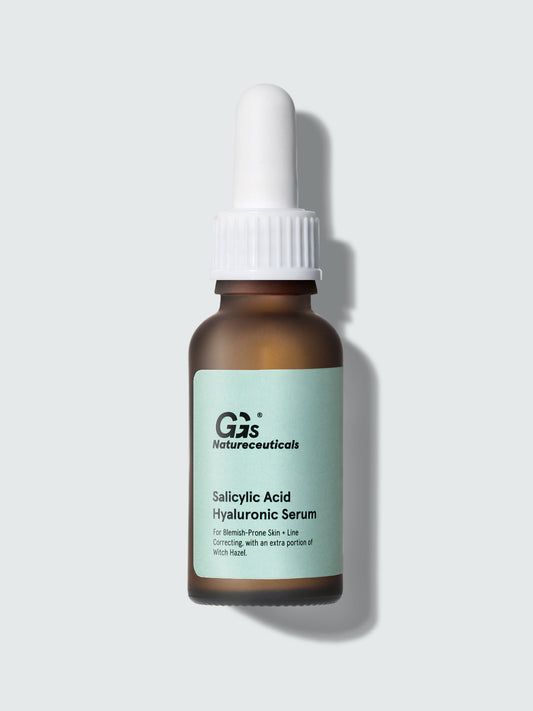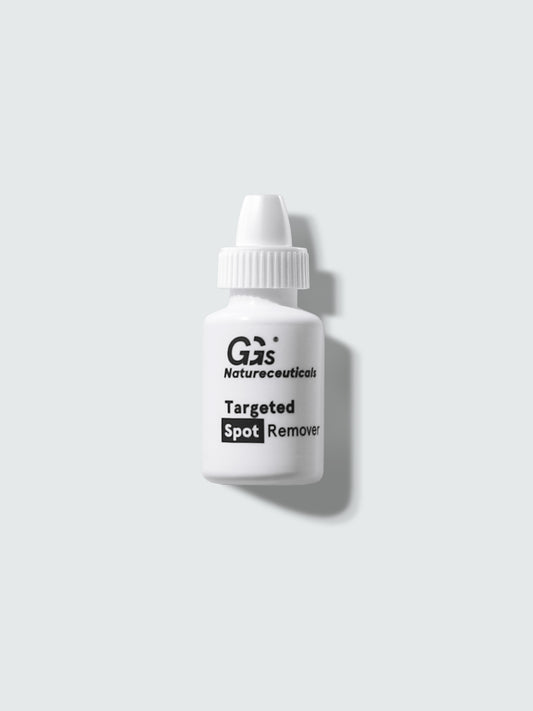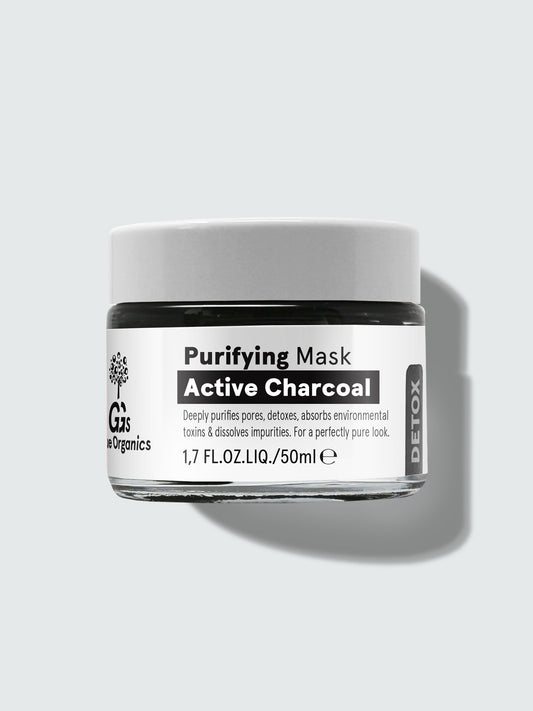Many women between 25 and their late 50s deal with skin issues on a daily basis, which can impact their well-being and are perceived as a flaw even in adulthood. But why is this the case? And more importantly, is there anything that can be done about it?
What is Late-Onset Acne or Adult Acne?
Late-onset acne is a form of acne that predominantly affects adults and is often triggered by hormonal changes. This type of acne frequently appears along the jawline, neck, and lower face. Symptoms include not only the usual pimples, redness, and blackheads but also deeper, painful nodules and cysts that can lead to scarring.

Differences Between Late-Onset Acne and Skin Blemishes
While many adults struggle with various types of skin blemishes, it's important to differentiate between general blemishes and late-onset acne. Here are the key differences to be aware of:
Late-Onset Acne (Adult Acne):
Target Group: Adults over 25, more common in women.
Symptoms: Characterized by inflamed acne lesions, including deeper nodules and cysts that can be painful. These typically appear along the jawline and lower face (U-zone).
Causes: Often triggered by hormonal changes but can also be influenced by stress, diet, and unsuitable skincare products.
General Skin Blemishes:
Target Group: Can affect individuals of any age.
Symptoms: Includes a wide range of skin concerns, such as superficial blackheads, small pimples, redness, and overall skin unevenness, which can appear anywhere on the face. These are less inflammatory and painful compared to late-onset acne.
Causes: Can be caused by various factors, including inadequate skincare, excessive sebum production, and clogged pores from makeup or dirt.
The Role of Skin as a Protective Barrier
The skin is the largest organ of the body and plays a crucial role as a protective barrier against environmental influences. Skin blemishes arise when pores become clogged with excess sebum and dead skin cells. Hormonal fluctuations, stress, diet, and improper handling of the skin can exacerbate these problems.
Common Causes of Skin Blemishes in Adults
Hormonal Changes:Hormone fluctuations during the menstrual cycle, pregnancy, or menopause can cause skin blemishes. Discontinuation of birth control pills or switching to a new contraceptive can also affect hormone balance, leading to increased blemishes.
Overly Rich Skincare:
When the first wrinkles and lines appear, many tend to choose products with a particularly high oil and fat content, which ultimately can clog pores and trigger acne.
Excess Bacteria on the Skin:
Healthy skin has a natural "acidic" protective film due to skin oils and sweat. If this protective film is disrupted by soaps, aggressive surfactants, comedogenic products, etc., bacteria can settle, multiply, and lead to inflammation.
Poor Diet and Lifestyle:
Certain foods, especially those with a high glycemic index like white sugar and refined flour products, can promote inflammation and contribute to skin blemishes. Dairy products are also discussed as they stimulate insulin and IGF-1 (Insulin-like Growth Factor 1), which can increase sebum production. Excessive alcohol and nicotine consumption also negatively affect the skin. Alcohol dehydrates the skin and weakens the skin barrier, while nicotine stimulates the skin's oil production and makes it more susceptible to hormonal fluctuations.
Stress:
Chronic stress, in particular, triggers the release of cortisol, which increases sebum production and can impair the immune system, thus increasing the susceptibility to skin inflammation. Whether professional or private, worries are often written all over your face.
Environmental Factors:
Environmental pollutants, particulate matter, UV radiation, and extreme weather conditions can damage the skin barrier and lead to skin blemishes.
Medications:
Antibiotics, corticosteroids, antidepressants, and certain steroids can lead to blemished skin.
What Skincare Helps with Skin Blemishes in Adulthood?
Cleansing:
A gentle but thorough cleansing is essential. Choose a cleanser that supports the skin's natural pH and is free of aggressive surfactants. Cleanse your face twice a day to remove dirt and excess oil without irritating the skin. Particularly important is to remove makeup in the evening. Going to bed without removing makeup is an absolute "no-go."
Choosing the Right Skincare Products:
Avoid cosmetics that are too rich or contain irritating ingredients such as fragrances (synthetic as well as natural essential oils) and certain preservatives. Instead, opt for products with ingredients that clear pores like salicylic acid and reduce inflammation while being soothing. Regular use of our deep-cleansing mask with activated charcoal and soothing elderflower extract "Purifying Mask Active Charcoal" effectively supports skin cleansing.
Additionally, our Daily AHA+BHA Peel Pads with fruit acids gently remove dead skin cells, providing a more even complexion.
Importance of Hydration:
Even oily skin needs moisture. Opt for light, non-comedogenic moisturizers that hydrate the skin without clogging the pores. A lightweight serum is often sufficient. Especially during the warm summer months, a good oil-free serum can be enough.
Proper Nutrition:
A balanced diet rich in omega-3 fatty acids, vitamins, and minerals can work wonders. Avoid excessive sugar and fatty foods that can promote inflammation.
Exercise and Sleep:
Regular physical activity and adequate sleep are not only good for the body but also for the skin. They help reduce stress and promote skin cell regeneration.
Managing Stress/Stress Management Techniques:
Techniques such as yoga, meditation, or simply taking regular relaxation breaks can help reduce psychological stress and improve skin health.
Our Final Tip:
Keep your hands off your skin. Even if it is difficult, avoid touching your face. Popping pimples and constant touching can spread bacteria, cause inflammation, and even small injuries that damage the skin.
When Nothing Helps: Dermatologist
For particularly stubborn skin issues, a visit to a dermatologist may be worthwhile. Sometimes, it may be a skin condition like perioral dermatitis or rosacea, requiring professional support.
Conclusion
Skin blemishes in adults can be frustrating, but with the right care and suitable lifestyle habits, you can significantly improve your skin's appearance. By carefully choosing products and routines tailored to your specific skin type and needs, you will enjoy clear and radiant skin in the long term.

